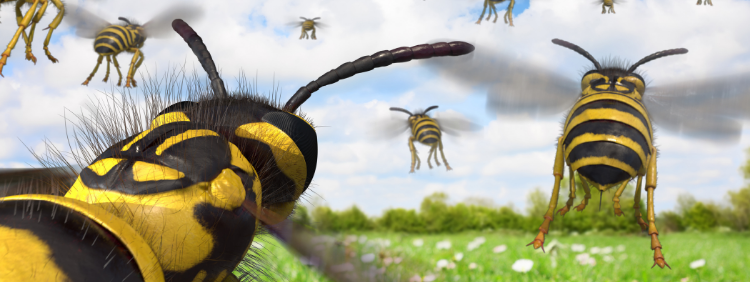 A wasp sting is painful at best. For people with allergies to the venom contained in the stinger, it can be life-threatening. More bad news: A single wasp sting can put you at risk for more. A wasp does not lose its stinger after an attack as a bee does, so it can continue to sting you. It also secretes a pheromone that attracts other wasps and induces them to sting you too. It is no wonder that so many homeowners call residential pest control over wasps. Learning more about wasps and how to avoid them can help you to prevent getting stung.
A wasp sting is painful at best. For people with allergies to the venom contained in the stinger, it can be life-threatening. More bad news: A single wasp sting can put you at risk for more. A wasp does not lose its stinger after an attack as a bee does, so it can continue to sting you. It also secretes a pheromone that attracts other wasps and induces them to sting you too. It is no wonder that so many homeowners call residential pest control over wasps. Learning more about wasps and how to avoid them can help you to prevent getting stung.
 A wasp sting is painful at best. For people with allergies to the venom contained in the stinger, it can be life-threatening. More bad news: A single wasp sting can put you at risk for more. A wasp does not lose its stinger after an attack as a bee does, so it can continue to sting you. It also secretes a pheromone that attracts other wasps and induces them to sting you too. It is no wonder that so many homeowners call residential pest control over wasps. Learning more about wasps and how to avoid them can help you to prevent getting stung.
A wasp sting is painful at best. For people with allergies to the venom contained in the stinger, it can be life-threatening. More bad news: A single wasp sting can put you at risk for more. A wasp does not lose its stinger after an attack as a bee does, so it can continue to sting you. It also secretes a pheromone that attracts other wasps and induces them to sting you too. It is no wonder that so many homeowners call residential pest control over wasps. Learning more about wasps and how to avoid them can help you to prevent getting stung.

